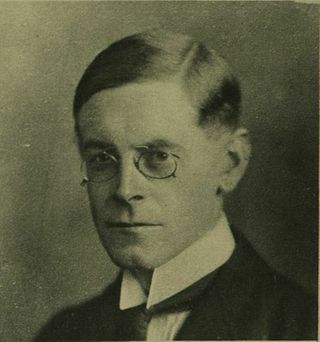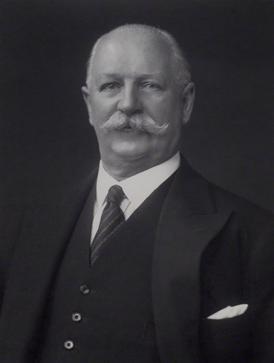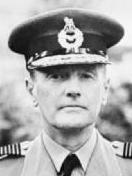Related Research Articles

The Maastricht Rebels were British Members of Parliament (MPs) belonging to the then governing Conservative Party who refused to support the government of Prime Minister John Major in a series of votes in the House of Commons on the issue of the implementation of the Maastricht Treaty in British law.
The National Labour Organisation, also known as the National Labour Committee or simply as National Labour, was a British political group formed after the 1931 creation of the National Government to co-ordinate the efforts of the supporters of the government who had come from the Labour Party. The party leaders were Ramsay MacDonald (1931–1937) and his son Malcolm MacDonald (1937–1945).
There have been various groups in Canada that have nominated candidates under the label Labour Party or Independent Labour Party, or other variations from the 1870s until the 1960s. These were usually local or provincial groups using the Labour Party or Independent Labour Party name, backed by local labour councils made up of many union locals in a particular city, or individual trade unions. There was an attempt to create a national Canadian Labour Party in the late 1910s and in the 1920s, but these were only partly successful.

At the 1931 general election, a small group of official Liberal candidates led by former Liberal Party leader, David Lloyd George, and mostly related to him, stood on a platform of opposition to the National Government and were sometimes referred to as Independent Liberals.
Wednesbury was a borough constituency in England's Black Country which returned one Member of Parliament (MP) to the House of Commons of the Parliament of the United Kingdom from 1868 until it was abolished for the February 1974 general election.
Parliamentary by-elections in the United Kingdom occur when a Member of Parliament (MP) vacates a House of Commons seat during the course of a parliament.

Charles Butt Stanton was a British politician, who served as an Member of Parliament (MP) from 1915 to 1922. He entered Parliament by winning one of the two seats for Merthyr Tydfil at a by-election on 25 November 1915 caused by the death of Labour Party founder, Keir Hardie. After the two-member Merthyr Tydfil seat was divided into two single member seats, Stanton focused on the Aberdare division, which he won at the 1918 general election, but lost at the 1922 general election.

Philip Milner Oliver CBE was a radical British Liberal Party politician in the United Kingdom who served for two short terms as Member of Parliament (MP) for Manchester Blackley.

The 1942 Maldon by-election was a parliamentary by-election held on 25 June 1942 for the British House of Commons constituency of Maldon in Essex. It was one a series of by-elections in World War II won by radical independent candidates.
Sir Hugh Nicholas Linstead OBE was a British pharmaceutical chemist and barrister who served as Conservative Party Member of Parliament (MP) for Putney for 22 years. Linstead had significant business interests in the pharmaceutical industry. His politics were on the moderate side of the Conservative Party and he was a strong supporter of the National Health Service.
The 1933 Kilmarnock by-election was a by-election held on 2 November 1933 for the House of Commons constituency of Kilmarnock in Ayrshire.
The 1938 Bridgwater by-election was a parliamentary by-election for the British House of Commons constituency of Bridgwater, Somerset held on 17 November 1938.

Abraham England, CMG, DSO was a British Liberal politician, businessman and soldier.
Sir Samuel Thomas Rosbotham, known as 'Sam Tom', was a British farmer and National Labour politician who served as the member of parliament for Ormskirk from 1929 to his resignation in 1939.

David Marshall Mason was a Scottish Liberal politician, banker and businessman.
Wilfrid Andrew Burke was a British Trade union organiser and politician who achieved high office in the Labour Party and served as Member of Parliament (MP) for Burnley for 24 years. He was briefly in the Attlee government as Assistant Postmaster-General. After leaving the government he concentrated on party work, fighting Bevanites and serving as Chairman of the National Executive Committee.

Edward Anthony Strauss was an English corn, grain and hop merchant of German-Jewish background. He was a Liberal, later Liberal National Member of Parliament.

Richard John Russell was a British dental surgeon and Liberal later Liberal National politician.

The 1942 Grantham by-election was a parliamentary by-election for the British House of Commons constituency of Grantham on 25 March 1942.
The Popular Front in the United Kingdom attempted an alliance between political parties and individuals of the left and centre-left in the late 1930s to come together to challenge the appeasement policies of the National Government led by Neville Chamberlain.
References
- ↑ "Labour M.P.s' Support Of Mr. Macdonald", The Times, 2 September 1931, p. 14.
- ↑ See his letter in The Times, 31 August 1931, p. 6, which casts doubt on the long-term future of the National Government and prophecies a Labour majority in the event of a snap election.
- ↑ "Lobby Opinion", The Times, 9 September 1931, p. 12.
- ↑ "Political Notes", The Times, 11 September 1931, p. 12.
- ↑ "The Way Of Economy" (letter), The Times, 3 September 1931, p. 11.
- ↑ "Labour Recruit For The Government", The Times, 24 September 1931, p. 9.
- 1 2 "Economy And New Taxes", The Times, 3 September 1931, p. 10.
- ↑ "Cdr. King-Hall to sit as Independent M.P.", The Times, 24 February 1942, p. 2.
- ↑ "Mr. K. Lindsay as Independent", The Times, 29 May 1943, p. 2.
- ↑ "New Cabinet At Work", The Times, 27 August 1931, p. 10.
- ↑ "Parliament To-Morrow", The Times, 7 September 1931, p. 10.
- ↑ "Sir Thomas Rosbotham To Retire", The Times, 12 October 1939, p. 5.
- ↑ "Mr. Snowden's Future", The Times, 29 August 1931, p. 10.
- ↑ Andrew Thorpe, "The British General Election of 1931", Clarendon Press, 1991, p. 95.
- ↑ The Times, 25 September 1931, p. 6.